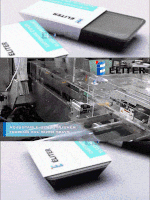Eco-labels and the popularity they currently have
2023-02-10
Eco-labels are an important tool for informing consumers about the environmental impact of products and services.

Ecological labels or eco-labels, have become a way of informing the consumer about the environmental characteristics of products and services. These labels have gained popularity in recent years due to the increase in environmental awareness and the urgent need to reduce the environmental impact of products.
There are several types of eco-labels, each with a different purpose. Some examples include energy efficient labels, which indicate that a product uses less energy than is required to meet the required standards, or organic product labels, which indicate that a product has been produced without the use of harmful chemicals.
According to the international standards ISO 14021, 14024 and 14025 three types of ecological labeling are established:
- Type I: Also called ecological labels, this certification is granted by a third party that acts as a certifying entity. This group includes the entire life cycle of the product or service: design, manufacture, distribution, use and final disposal with environmental preferences.
- Type II: These are known as self-declared environmental labels. These labels have claims made by the manufacturer and do not have any type of certification.
- Type III: Finally, type III environmental labels are those that provide quantitative information about the environmental attributes that a product has. This labelling highlights the voluntary and non-obligatory nature on the part of the manufacturer.
Among the most popular labels is the eco-friendly product label Ecolabel. A European Type I environmental label that is used to identify products and services that have a reduced environmental impact compared to similar products. The Ecolabel is awarded to products and services that meet the environmental criteria established by the European Union.
The Energy efficient product (Energy Star) label has also become popular, which is used to identify products and services that use less energy than the established standards. This label is used in many countries, including the United States, Canada and Australia.
More tag news here
Another type of labels that are common in the industry are the Semi Type I and the Quality Seals. These refer to specific environmental aspects and are awarded by associations that give value to different sustainability actions. One example is the Forest Stewardship Council (FSC) certification seals, awarded to those products that come from responsibly managed forests.
In addition to helping consumers make more informed purchasing decisions, eco-labels can also help companies improve their reputation and attract environmentally-conscious consumers.
However, it is important to keep in mind that some eco-labels may be misleading or have no real utility. It is crucial to research and verify the validity of any eco-label before relying on it.




